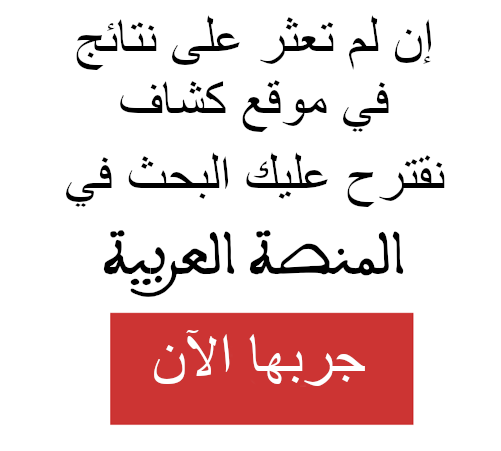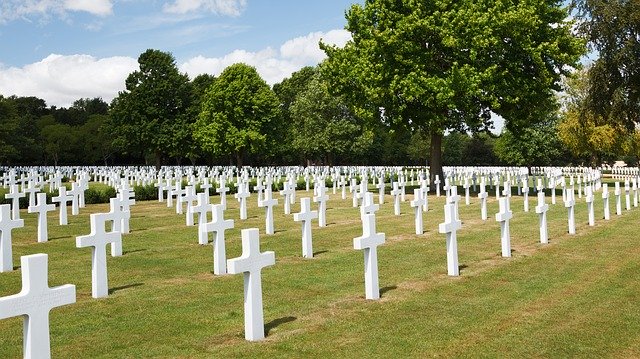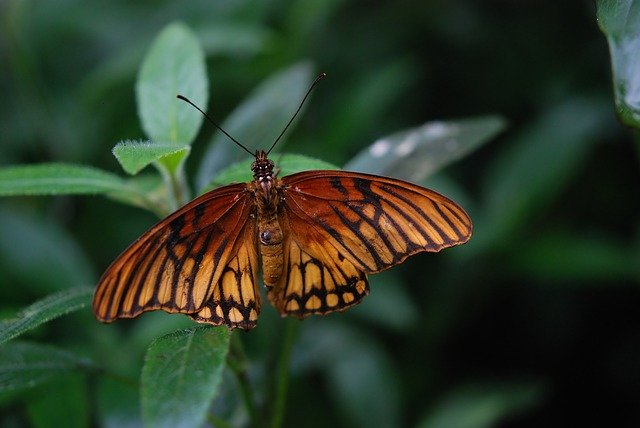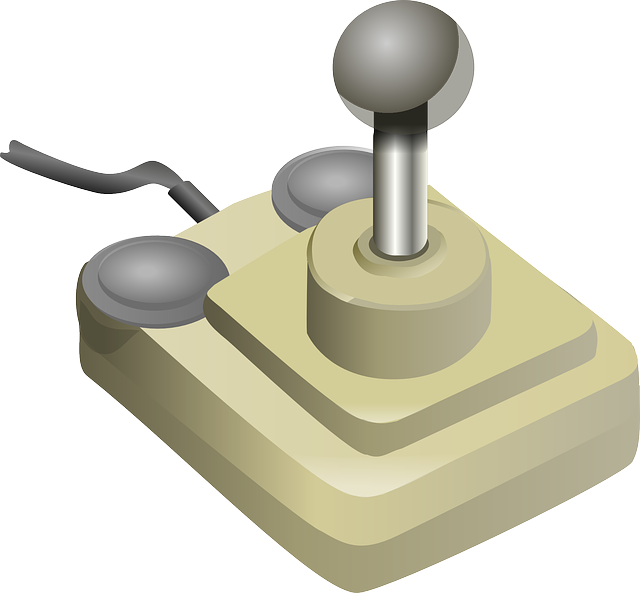مدام نو
| Trần Lệ Xuân | |
|---|---|
| مدام نو | |
| First Lady of South Vietnam | |
|
في المنصب 26 October 1955 – 2 November 1963 | |
| الرئيس | Ngô Đình Diệm |
| خلفه | Madame Khánh |
| تفاصيل شخصية | |
| وُلِد |
22 أغسطس 1924 هانوي، الهند الصينية الفرنسية |
| توفي | 24 أبريل 2011 (عن عمر 86 عاماً) Rome, Italy |
| الحزب | Can Lao |
| الزوج | Ngô Đình Nhu (ز. 1943–63); his death |
| الأقارب |
Trần Văn Chương (father) Thân Thị Nam Trân (mother) Ngô Đình Diệm (brother-in-law) Trần Văn Khiêm (brother) |
| الأنجال | Ngô Đình Trác Ngô Đình Quynh Ngô Đình Lệ Thủy (died 1967) Ngô Đình Lệ Quyên (died 2012) |
| الدين |
Catholic Church prev. Mahayana Buddhism |
Trần Lệ Xuân (22 August 1924 – 24 April 2011), more popularly known as Madame Nhu, was the de facto First Lady of South Vietnam from 1955 to 1963. She was the wife of Ngô Đình Nhu, who was the brother and chief-advisor to President Ngô Đình Diệm. As Diệm was a lifelong bachelor and because she and her family lived in Independence Palace together with him, she was considered to be the first lady.
Known for her harsh and incendiary comments that attacked and severely denounced the Buddhist community of South Vietnam and the strong American influence and presence in the country, she had to live in exile in France after her husband and her brother-in-law, Diệm, were assassinated in 1963.
السنوات المبكرة
Trần Lệ Xuân was born into a wealthy aristocratic family in Hanoi, French Indochina, then part of the French colonial empire. Her given name means "Spring's Beauty" (Not "Spring's Tears". This is a Sino-Vietnamese word that means "beautiful". Lệ - Diễm Lệ, so Lệ Xuân means "Beautiful Spring". Traditionally and superstitiously, Vietnamese parents never used "bad and unlucky" words to name their children. In this case, Lệ Xuân had another sister with the name of Lệ Chi; and she herself had two daughters she named Lệ Thủy and Lệ Quyên. So Lệ means beautiful.) Her paternal grandfather was close to the French colonial administration, while her father, Trần Văn Chương, studied law in France, and practiced in Bac Lieu in the Mekong Delta before marrying into the ruling imperial dynasty. Her father also served as the first foreign secretary for Indochina under Japanese occupation. Her mother, Thân Thị Nam Trân, was a granddaughter of Emperor Đồng Khánh and a cousin of Emperor Bảo Đại.[] The Chươngs were under observation by the French police who doubted their loyalty to France with M. Choung dismissed as a "little runt" controlled by his wife while Madame Chuong described as "beautiful and very intriguing...the one who directs her husband" and she was known for "her dogged ambition as for her coucheries utilitaires-sleeping around with people of influence from any and all nationalities".
Lệ Xuân's education at the Lycée Albert Sarraut was entirely in French, and she remembered as a schoolgirl learning about French history and nothing about Vietnamese history and of singing songs about the forests and mountains of France, observing later the purpose of her education was to eradicate any sense of a Vietnamese identity, and to make her into a proper young Frenchwoman. The purpose of French educational policies in Vietnam was always in reference to France's self-proclaimed mission civilisatrice ("civilizing mission") was to make all Vietnamese into "Frenchmen with yellow skin", and thus French teachers tried to stamp out any sense of a Vietnamese identity in their students. The message French teachers taught their students was that to be French was to be "civilized" and to be Vietnamese was to be "uncivilized". She dropped out of Lycée Albert Sarraut, a prestigious French school in Hanoi. She spoke French at home and could not write in Vietnamese; as an adult, she drafted her speeches in French and had them translated into Vietnamese. She gained a reputation in her youth as a tomboy who loved ballet and piano, once dancing solo at Hanoi's National Theatre. She had an elder sister named Trần Lệ Chi (who married the Frenchman Etienne Oggeri and changed her name to Lechi Oggeri) and a younger brother, Trần Văn Khiêm. Like many other Vietnamese, Lệ Xuân was to find that no matter how hard she tried to be French, that the French were only prepared to accept whites as French.
When she became an adult, her mother introduced her to a series of eligible young men, but she insisted on Nhu. He was fourteen years older and referred to her as "little niece" in accordance with Vietnamese custom. In accordance with Vietnamese tradition, they were married three years after being betrothed in 1940. In May 1943, aged 18, she married Nhu, and converted from Mahayana Buddhism to Roman Catholicism, her husband's religion. Madame Nhu later admitted she married Nhu as a way of getting away from her family, saying "I never had a sweeping love. I read about such things in books, but I do not believe that they really existed. Or perhaps only for a very few people". After an uprising by the Viet Minh in August 1945, her brother-in-law, Ngô Đình Khôi, the eldest of the Ngô brothers, was buried alive,[] and Nhu and another brother, Ngô Đình Cẩn, were forced to flee.[]
She, her mother-in-law and her eldest daughter, at the time a baby, were captured. Thinking her piano was a radio for communicating with French colonialists, the Viet Minh blew it up and then exiled her to a remote village for four months, where she lived on two bowls of rice a day. The French dismissed Nhu from his post at the National Library due to his brother (Diệm)'s nationalist activities, and he moved to Đà Lạt and lived comfortably, editing a newspaper, where his wife bore three more children. The French war in Vietnam made little impression on Madame Nhu from her home in Đà Lạt, and she often called the war 'une guerre bizardouille (a bizarre little war) as the fighting never affected her personally. Nhu was during these years building a secret political party called the Can Lao (Personalist Labour Party) based on the Catholic philosophy of personalism (people were persons, not individuals) while Madame Nhu later saying "I was alone most of the time. My husband would simply disappear without a word". To improve her husband's career, Madame Nhu befriended her cousin, the Emperor Bai Dao during this time.
الصعود للسلطة
Madame Nhu's brother-in-law, Ngo Dinh Diem, had been appointed Prime Minister of the State of Vietnam by her mother's distant cousin, Emperor Bảo Đại, after the French had been defeated at the Battle of Điện Biên Phủ. At the start of 1955, French Indochina was dissolved, leaving Diệm in temporary control of the south. After the French defeat at the Battle of Điện Biên Phủ, the French wanted to hang on to a zone of influence in the south by keeping the Emperor Bảo Đại, while the Americans wanted to push the French out by having Diem create a republic . Diem in the words of an American diplomat had developed "a blind hatred of the French" and the Americans believed that South Vietnam needed an anti-Communist leader who was not tainted with any associations with the French, which led them to back Diem. Madame Nhu had lobbied Bao Dai to appoint her brother-in-law Prime Minister and believed that it was her influence that led to the appointment. She was deeply shocked to learn the real reason why Bao Dai had appointed Diem Prime Minister was out of the expectation that he would fail in order to neutralize him as the State of Vietnam was in a serious political and economic crisis by 1954 that almost nobody expected Diem to master, and she never forgive either the Emperor or the French for their plot to ruin Diem. In order to ensure American support for Diem, Madame Nhu befriended Americans working at the embassy in Saigon known to be CIA agents. For their part, the French backed General Nguyễn Văn Hinh as Prime Minister, and he in his turn had won the support of the Binh Xuyen crime syndicate that dominated the economic life of Saigon. Giving Madame Nhu an additional reason to intrigue against Hinh was his repeated boosting when he deposed Diem he would make Madame Nhu into another of his concubines. At a party, Madame Nhu confronted Hinh to tell him: "You are never going to overthrow this government because you don't have the guts. And if you do overthrow the government it, you will never have me because I will claw your throat out first!" To win support for Diem, Madame Nhu hit upon the idea of enlisting support from the million or so refugees, many of them Catholics who fled to the south after the Geneva accords had partitioned Vietnam, organizing them for a massive pro-Diem demonstration on 21 September 1954. The rally in Saigon led a confrontation on the streets between Madame Nhu and Binh Xuyen gunmen, with Nhu daring the thugs to kill her right then and there, which caused them to demure, and the rally went on. Emboldened by this triumph, Diem saw a chance to put his puritanical Roman Catholic values into practice and to strike a blow at the Binh Xuyen at the same time by shutting down the brothels, gambling houses and opium dens of Saigon owned by the Binh Xuyen while having pornographic magazines burned on the streets (the Binh Xuyen were the largest producers and sellers of pornography in Vietnam).
A referendum was scheduled for 23 October 1955, to determine the future direction of the south. It was contested by Bảo Đại, the Emperor, advocating the restoration of the monarchy, while Diệm ran on a republican platform. The elections were held, with Nhu and the family's Cần Lao Party, which supplied Diệm's electoral base, organising and supervising the elections. Campaigning for Emperor Bảo Đại was prohibited, and the result was rigged, with Đại's supporters attacked by Nhu's paid thugs. Diệm claimed 98.2% of the vote, including 605,025 votes in Saigon, where only 450,000 voters were registered. Diệm's tally exceeded the registration numbers in other districts. As a result, Diệm eliminated the Emperor Bao Dai and became the first president of South Vietnam. Madame Nhu made no secret of her dislike for the Emperor Bao Dai, calling him "that French puppet".
بعد الانتخابات
After the election, the couple moved into the Presidential Palace. Madame Nhu was influential on government policy and, since her brother-in-law, Ngô Đình Diệm, was unmarried, she was regarded as the First Lady of South Vietnam. She attempted to combine Roman Catholicism with herself as a modern reincarnation of Vietnam's fabled Trưng Sisters, who temporarily defeated the invading Hán Dynasty Chinese troops in AD 40. President Diem never married and is not known to had a relationship with any women, through his bodyguard noted he was fond of keeping "good looking men around him". Diem, who was known for his poor social skills, decided to have sister-in-law serve as the unofficial First Lady of South Vietnam. Madame Nhu frequently talked to the Vietnamese, French and foreign press quite candidly. Madame Nhu's marriage was unhappy as she wrote in her diary of an all consuming "rising desire" in her body, complained her husband had little interest in sex with her, and wrote with disgust of his affections for a younger woman whom she called that "creature" who was very "vulgar" and "dirty". Madame Nhu devoted her time to politics, championing a new Family Code she presented to parliament in October 1957 and passed in June 1958 to replace the old French code that banned concubinage and polygamy; allowed women to open bank accounts and own property; and required that daughters be given greater inheritance rights.
In 1962, she had a statue erected in Saigon to the memory of the Trưng Sisters, with the facial features modelled on herself, and also established the Women's Solidarity Movement, a female paramilitary organization. The statue cost US$20,000, a substantial sum at the time, given that South Vietnam was a developing country, but she was undeterred by criticism about largesse. She pressured the wives of ARVN officers and public servants into joining her "movement". A flamboyant women, Madame Nhu took to flashing around her handgun in public, and the Women's Solidarity Movement was intended to allow Vietnamese women to participate in the fight against the Viet Cong, just as the Trung sisters had fought against the Chinese, but most of the women who joined the movement were upper-class women who believed that their husbands would benefit by being given government jobs.
Her father became the ambassador to the United States while her mother was South Vietnam's observer at the United Nations. Two of her uncles were cabinet ministers. Her parents resigned their posts in 1963, in protest over the treatment of Buddhists under the regime of President Diệm and disowned their daughter.
Howard Jones says "Madame Nhu was chauffeured in a black Mercedes and wore a small diamond crucifix", and "wore form-fitting apparel so tight that one French correspondent suggestively described her as 'molded into her ... dress like a dagger in its sheath.' On formal occasions, she wore red satin pantaloons with three vertical pleats, which was the mark of the highest-ranking women of the imperial court in ancient Annam." When Diệm once criticized her apparel, she snapped: "It's not your neck that sticks out, it's mine. So, shut up."
Downfall
On 2 November 1963, Diệm and Nhu were assassinated in a coup d'état led by General Dương Văn Minh (Armed Forces Council) with the understanding that the United States would not intervene. At the time of the assassinations, Madame Nhu was in Beverly Hills, California, traveling with her 18-year-old daughter, Ngô Đình Lệ Thủy. Her other children were in Vietnam at the family retreat in Đà Lạt and she feared that they would meet the same fate as their father. The children were not harmed by the generals and were flown out of the country into exile in Rome, where they were placed in the custody of their uncle, Archbishop Thục. Madame Nhu later flew to Rome to join them.
In response to the killings of Diệm and Nhu, she immediately accused the United States, saying "Whoever has the Americans as allies does not need enemies", and that "No coup can erupt without American incitement and backing". She went on to predict a bleak future for Vietnam and said that, by being involved in the coup, the troubles of the United States in Vietnam were just beginning. She called the deaths an "indelible stigma" against the Americans and said "My family has been treacherously killed with either official or unofficial blessing of the American government, I can predict to you now that the story is only at its beginning." She invoked biblical analogies, saying "Judas has sold the Christ for thirty pieces of silver. The Ngô brothers have been sold for a few dollars." When asked if she wanted asylum in the United States, she said, "I cannot stay in a country whose government stabbed me in the back. I believe all the devils in hell are against us."
In the aftermath of the coup, the statues of the Trưng Sisters that Madame Nhu had erected with her own facial features were demolished by jubilant anti-Diệm rioters. The Times of Vietnam office was also burned down, and the newspaper was never published again.
الحياة في المنفى
The military government of Vietnam under General Dương Văn Minh confiscated all of the property in Saigon that belonged to Madame Nhu and her family, and she was not allowed to return to South Vietnam. She went to Rome briefly before moving permanently to France with her children. Her daughter, Lệ Thủy, died in 1967, at age 22, in an automobile accident in Longjumeau, France.
In November 1982 Madame Nhu accorded a first significant interview on the historic events in Vietnam to Judith Vecchione in Rome. Vecchione was a producer for , A Television History. The series was subsequently aired on PBS in 1983.
On 2 November 1986, Madame Nhu charged the United States with hounding her family during the arrest of her younger brother, Trần Văn Khiêm, who was charged in the strangling deaths of their parents in their Washington, D.C. home after being cut out of their will.
In 1993, she sued her parents' insurance company to prevent it from awarding their death benefit because she contested the validity of their wills. Her parents allegedly changed their wills, disinheriting their son Khiem and Madame Nhu and making their sister Le Chi the sole beneficiary.
In the 1990s, she was reportedly living on the French Riviera and charging the press for interviews. In 2002, she gave an interview to journalist Truong Phu Thu of Dân Chúa Mỹ Châu, a Vietnamese Catholic community publication. It was published in October 2004. The article stated that she was living in Paris and working on her memoirs.
In her last years, she lived with her eldest son, Ngô Đình Trác, and youngest daughter, Ngô Đình Lệ Quyên, in Rome, and was reportedly working on a book of memoirs to be published posthumously. Her memoirs would be written in French and would be translated into Vietnamese and Italian.
In early April 2011, she was taken to a hospital in Rome where she died three weeks later, on Easter Sunday, 24 April 2011. News of her death was announced by her sister Lechi Oggeri, while family friend Truong Phu Thu was interviewed by BBC News afterwards.
Books about Madame Nhu
- Finding the Dragon Lady: the Mystery of Vietnam's Madame Nhu
- There is the significant claim upon this book that the author was ultimately entrusted with Madame Nhu's unpublished memoirs
- and her diary from the years leading up to the coup.
- Trần Lệ Xuân Giấc Mộng Chính Trường (Vietnamese book)
- Đệ Nhất Phu Nhân Trần Lệ Xuân (Vietnamese book)
- La République du Viêt-Nam et les Ngô-Đình - written by the children of Madame Nhu, Ngo Dinh Quynh and Ngô Đình Lệ Quyên, also family friend Madame Jacqueline Willemetz (French book)
Influence on Vietnamese fashion
In the early 1960s, Madame Nhu popularized a tight-fitting version of the traditional áo dài (long dress) that was considered controversial in its day, due to its tight fit and low-cut neckline. According to Boi Tran Huynh, a scholar of Vietnamese visual arts, "To foreigners, this collar made sense, given the tropical conditions, but conservatives saw it as too suggestive for Vietnamese women."
Children
- Ngô Đình Lệ Thủy was killed on 12 April 1967, in an automobile accident in Longjumeau, France.
- Ngo Dinh Trac became an agricultural engineering graduate, is married and has four children (3 boys, 1 girl).[]
- Ngo Dinh Quynh graduated from ESEC (École superieur du commerce et de I'economie), a private school training professionals in the economy. He works as a trade representative for a U.S. company in Brussels, Belgium.[]
- Ngô Đình Lệ Quyên received a Ph.D. from the University of Rome. Lệ Quyên was a lawyer in the legal IT sector and was invited as a guest lecturer at presentations by Law Faculty of the University of Rome. She served as Commissioner of Immigration Caritas Europe. On 16 April 2012, she was killed in a traffic accident on the way to work in Rome.
Quotes
- "Whoever has the Americans as allies does not need enemies." (following the assassination of her husband and her brother-in-law)
- "Whoever has the Americans as ally does not need an enemy. I did not believe them. But if the news is true, if really my family has been treacherously killed with either official or unofficial blessings of the American government, I can predict to you all that the story in Vietnam is only at its beginning." [audio file, External Links below]
- "If one has no courage to denounce, if one bows to madness and stupidity, how can one ever hope to cope with the other wrongs of humanity exploited in the same fashion by Communists?" (referring to the practice of self-immolation of Buddhist monks)
- "I may shock some by saying "I would beat such provocateurs ten times more if they wore monks' robes," and "I would clap hands at seeing another monk barbecue show, for one can not be responsible for the madness of others."
- Explaining her macabre comment about "these Buddhist barbecues" after the suicides by fire began, she said that her daughter had overheard a U.S. soldier use the phrase at a Saigon hot-dog stand. "It sounded like a perfectly harmless Americanism," said Mme. Nhu.
- She said that the media, including The New York Times, were under a "mad spell" cast by the Buddhists and needed electroshock therapy to rehabilitate them.
References
Citations
- ^ نطقب:Vi "Bà Trần Lệ Xuân qua đời". BBC News. 24 April 2011. Retrieved 25 April 2011.
- ^ Joseph R. Gregory (26 April 2011). "Madame Nhu, Vietnam War Lightning Rod, Dies". New York Times. Retrieved 26 April 2011.
- ^ https://en.glosbe.com/vi/en/lệ
- ^ Karnow, pp. 280–284.
- ^ J. Lacouture, Vietnam: Between Two Truces, p. 79
- ^ Lacouture, p. 79.
- ^ The Royal Ark
- ^ Demery, Monique Finding the Dragon Lady, New York: Public Affairs, 2013 page 33.
- ^ Jones, pp. 292–93.
- ^ Warner, p. 93.
- ^ Demery, Monique Finding the Dragon Lady, New York: Public Affairs, 2013 page 30.
- ^ Prochnau, pp. 122–23.
- ^ Demery, Monique Finding the Dragon Lady, New York: Public Affairs, 2013 page 37.
- ^ Jones, p. 293.
- ^ Demery, Monique Finding the Dragon Lady, New York: Public Affairs, 2013 page 63.
- ^ Demery, Monique Finding the Dragon Lady, New York: Public Affairs, 2013 page 64.
- ^ Demery, Monique Finding the Dragon Lady, New York: Public Affairs, 2013 pages 65-66.
- ^ Maclear, pp. 65–68.
- ^ Demery, Monique Finding the Dragon Lady, New York: Public Affairs, 2013 pages 80-81.
- ^ Demery, Monique Finding the Dragon Lady, New York: Public Affairs, 2013 page 81.
- ^ Demery, Monique Finding the Dragon Lady, New York: Public Affairs, 2013 page 81.
- ^ Demery, Monique Finding the Dragon Lady, New York: Public Affairs, 2013 page 81.
- ^ Demery, Monique Finding the Dragon Lady, New York: Public Affairs, 2013 pages 81-82.
- ^ Demery, Monique Finding the Dragon Lady, New York: Public Affairs, 2013 pages 82-83.
- ^ Demery, Monique Finding the Dragon Lady, New York: Public Affairs, 2013 page 83
- ^ Demery, Monique Finding the Dragon Lady, New York: Public Affairs, 2013 page 83.
- ^ Demery, Monique Finding the Dragon Lady, New York: Public Affairs, 2013 page 86.
- ^ Demery, Monique Finding the Dragon Lady, New York: Public Affairs, 2013 page 87.
- ^ Demery, Monique Finding the Dragon Lady, New York: Public Affairs, 2013 page 88.
- ^ Karnow, p. 239. خطأ استشهاد: وسم
<ref>غير صالح؛ الاسم "karnow55" معهد أكثر من مرة بمحتويات مختلفة. - ^ Langguth, p. 99.
- ^ Jacobs, p. 95.
- ^ Demery, Monique Finding the Dragon Lady, New York: Public Affairs, 2013 page 66.
- ^ Demery, Monique Finding the Dragon Lady, New York: Public Affairs, 2013 page 98.
- ^ Demery, Monique Finding the Dragon Lady, New York: Public Affairs, 2013 page 107.
- ^ Demery, Monique Finding the Dragon Lady, New York: Public Affairs, 2013 page 102.
- ^ Langguth, pp. 169–171.
- ^ Langguth, p. 170.
- ^ Demery, Monique Finding the Dragon Lady, New York: Public Affairs, 2013 pages 125-126.
- ^ Tucker, p. 293.
- ^ The couple was found strangled to death in Washington, D.C., in 1986, killed by their son, Trần Văn Khiêm, reportedly for being cut out of their will, according to "Change in Will Linked to Saigon Aide's Death", The New York Times,ثمانية August 1986
- ^ Jones, p. 294.
- ^ Jones, p. 433.
- ^ Jones, p. 431.
- ^ Jones, pp. 432–33.
- ^ Jones, p. 407.
- ^ Jones, p. 423.
- ^ Jones, p. 424.
- ^ Milestones: 21 April 1967, Time
- ^ Interviewing Madame Nhu, 1982 by Judith Vecchione
- ^ "American Experience | Vietnam, a Television History". PBS. Retrieved 14 December 2012.
- ^ FindACase | 03/02/93 ESTATE TRAN VAN CHUONG v. FIRST AMERICAN
- ^ نطقب:Vi ". BBC News. 26 April 2011. Retrieved 26 April 2011.
- ^ Robert Templer (26 April 2011). "Madame Nhu obituary". The Guardian. Retrieved 26 April 2011.
- ^ نطقب:Vi Tú Anh (25 April 2011). "Bà Ngô Đình Nhu từ trần tại Roma, hưởng thọ 87 tuổi". Radio France Internationale. Retrieved 25 April 2011.
- ^ http://www.thedailybeast.com/witw/articles/2013/09/24/finding-the-dragon-lady-in-search-of-vietnam-s-infamous-madame-nhu.html
- ^ Barnes & Noble sales dept promotion
- ^ by Boi Tran Huynh; Chapter 4: Visual Arts of the Republic of Viet-Nam (The South) 1954–1975: The 'Other'
- ^ http://www.vietnhim.com/dongnhim/showthread.php?t=20024
- ^ ImmigrazioneOggi - Oblò: i rifugiati... ed il coraggio di chi salva vite umane
- ^ "Letters to the Times: Mrs. Nhu Defends Stand", The New York Times, 14 August 1963.
- ^ "In the Lions' Cage". Time. 18 October 1963. Retrieved 7 July 2013. (يتطلب اشتراك.)
Sources
- Halberstam, David; Singal, Daniel J. (2008). The Making of a Quagmire: America and Vietnam during the Kennedy Era. Lanham, Maryland: Rowman & Littlefield. ISBN .
- Hammer, Ellen J. (1987). A Death in November: America in Vietnam, 1963. New York City: E. P. Dutton. ISBN .
- Jacobs, Seth (2006). Cold War Mandarin: Ngo Dinh Diem and the Origins of America's War in Vietnam, 1950–1963. Lanham, Maryland: Rowman & Littlefield. ISBN .
- Jones, Howard (2003). Death of a Generation: How the Assassinations of Diem and JFK Prolonged the Vietnam War. New York City: Oxford University Press. ISBN .
- Karnow, Stanley (1997). Vietnam: A History. New York City: Penguin Books. ISBN .
- Langguth, A. J. (2000). Our Vietnam: the war, 1954–1975. New York City: Simon & Schuster. ISBN .
- Maclear, Michael (1981). Vietnam: The Ten Thousand Day War. New York City: Methuen Publishing. ISBN .
- Olson, James S. (1996). Where the Domino Fell. St. Martin's Press. ISBN .
- Tucker, Spencer C. (2000). Encyclopedia of the Vietnam War: A Political, Social and Military History. Santa Barbara, California: ABC-CLIO. ISBN .
- Warner, Denis (1964). The Last Confucian: Vietnam, South-East Asia, and the West. Sydney: Angus and Robertson.
- Moyar, Mark (2006). Triumph Forsaken The Vienam War, 1954–1965. Cambridge.
وصلات خارجية
- Interview with Madame Nhu, 1982
- Madame Ngô Đình Nhu, sister-in-law of President Diệm speaking after the assassination of husband and brother-in-law (audio file)
- Madame Nhu speaking of "barbecued monks" (download mp3 or mpg file)
- "Dainty Emancipator" Time magazine, 26 January 1959
- مدام نوat the Internet Movie Database
| ألقاب فخرية. | ||
|---|---|---|
| سبقه Empress Nam Phương |
First Lady of South Vietnam 1955–63 |
تبعه Madame Khánh |
نطقب:Buddhist crisis
















